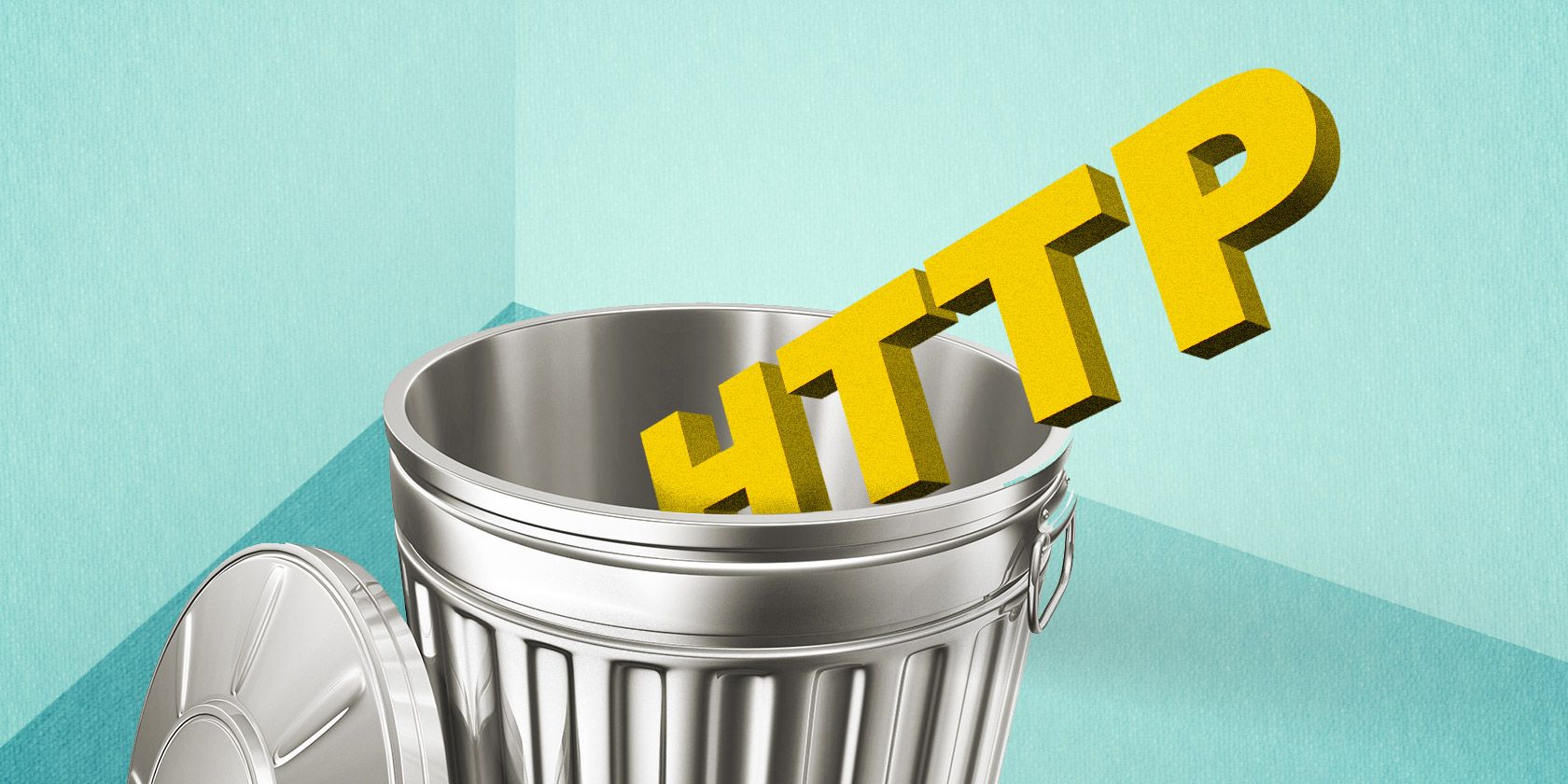Hypertext Transfer Protocol (HTTP) is the technology that underpins data communication across the entire Internet. It establishes how messages are transmitted, what actions browsers should take in response to certain commands, and how servers deal with requests.
In short, HTTP is how we browse the web.
The earliest documented release of HTTP dates back to 1991, though it wasn't adopted by web browsers until 1996. That means 2016 marks its twentieth birthday – and in the world of technology, that's ancient. Surely there has to be a newer, faster, and more secure protocol that we can use?
Actually, there is! It's called the InterPlanetary File System (IPFS). In this post, we look at what it is, how it works, and whether it could truly replace HTTP as the web's standard mode of communication.
How the IPFS Works
IPFS is an open source hypermedia distribution protocol which is addressed by content and identities. That sounds like a mouthful, but don't worry. We're going to break it down into something more digestible.
According to their own website, the developers want to use it to "make the web faster, safer, and more open". Keep that in mind as we explore the details.
IPFS is a peer-to-peer distributed file system, so you can think of it as being similar to a BitTorrent swarm -- i.e. the total number of peers currently sharing a single torrent -- except IPFS is used to exchange git objects. It uses a distributed hash table, an incentivized block exchange, and a self-certifying namespace, and thus has no single point of failure.
It works by connecting all computing devices with the same system of files via a system of nodes. This removes the need for websites to have a central origin server that serves pages to the reader, and because of that, it provides a way to banish HTTP and potentially improve the very fabric of the Internet.
Why IPFS Is Useful for You
The technical jargon is all well-and-good, but don't despair if you don't understand it. You don't need to know the nitty-gritty details to make use of it.
But that brings up another question: What are the practical benefits of IPFS to end-users like you and me? How does it improve on HTTP? Or in other words, why should we even consider switching to it?
No Reliance on Servers
We've all seen the dreaded "404 Page Not Found" page while browsing the web. In layman's terms, it means that the page you're looking for doesn't exist. More technically, the 404 code is used to indicate that the web server could not find what you requested.
You might see a 404 if the content you're looking was old and has been taken offline, but it could also mean the server is malfunctioning -- and therein lies one of the bigger problems of HTTP.
If a server dies or is permanently relocated to a new place, any links that are pointing at it will cease to work. Forever. Whatever content was on that server will be lost and there is no way to recover any of it unless you were prescient enough to save it ahead of time.
The bottom line is this: centrally managed servers will inevitably stop working. Domain owners could change, the website owners could go bankrupt, or the server hardware itself could reach the end of its lifespan without having been backed up. And when that happens, digital history is lost.
The key difference with IPFS is that instead of searching for locations (servers), you search for the content itself. Instead of asking and trusting one server to provide you file you need, there are millions of computers capable of delivering that specific file. Just like BitTorrent.
No More Centralization
The knock-on effect of the above-described problem is a headlong scramble towards larger and better-managed central servers that end up being operated by some of the biggest names in tech: Amazon, Google, etc.
This raises its own problems. For example, stories of government and corporate spying are becoming more widespread, hackers are using more and more DDoS attacks, ISPs are blocking services they don't want you to access, countries are blocking content they don't want you to access, and our own data is used against us.
It's the complete opposite of the decentralized web that the Internet was originally envisaged as being. A real disaster.
A truly distributed web would make it possible to access sites despite hiccups in Internet service. Ideally, you'd even be able to access the web even while offline! That would be a massive plus not only for the developing world, but for our individual rights to privacy.
IPFS founder Juan Benet summed the issue of centralization thusly:
"The web today is highly centralized. I find it very concerning that so much of human expression and human communication these days is routed entirely via centralized social networks which may disappear at any moment, bringing down all the data with them—or at least breaking all the links."
"Building an information network that will stay up forever is as modern as it gets. We're pushing for a fully distributed web, where applications don't live at centralized servers, but operate all over the network from users' computers... a web where content can move through any untrusted middlemen without giving up control of the data, or putting it at risk."
Reductions in Cost
The third and final benefit is a reduction in cost -- both for content providers and end users.
Serving data via HTTP from the other side of the world is expensive. Data providers get charged for peering agreements and each network hop costs more money -- and that's before you add on the extortionate cost of "final leg" ISPs. (We won't name any names here.)
The largest Internet companies are already creaking under the strain of the world's content consumption demands. As more developing countries continue to come online, those demands will only get worse, and the costs will only continue to rise.
In a blog post on their website, IPFS predicts that it had cost Google around $2,742,860 to provide the music video for "Gangnam Style" to YouTube users. Could you imagine a small-time Internet provider trying to keep up with that kind of demand? That's a lot of bandwidth.
IFPS would allow that same video to be completely downloaded from within your own ISP's network no matter where you are, thus eliminating the need for numerous hops over multiple interconnected networks and drastically reducing overall costs.
IPFS Isn't the Only Alternative
The biggest rival to IPFS is MaidSafe, though it has not yet been released. Like IPFS, it wants to realize the dream of a decentralized Internet. It will work by joining together the spare computing capacity of all its users, with everyone's data and applications residing on the newly created network.
It will also arguably have better encryption than IPFS. That's because IPFS uses encryption for all communication, but it's not yet been proven to be secure. MaidSafe breaks all files into three pieces and encrypts them individually.
Another option is MegaNet. Founded by the legendary Kim Dotcom, the service would be a decentralized non-IP based network which makes use of the same blockchain as Bitcoin. Dotcom claims the necessary bandwidth and storage capacity would be provided by the mobile phones of its users.
Lastly, some people have compared IPFS to Tor, but this is a false comparison. Tor directs traffic through a worldwide network of more than seven thousand relays in a bid to conceal a user's identity and location, but it still ultimately relies on HTTP so it's technically not an alternative.
IPFS May Be Our Best Hope
At this stage, it is hard to make a definitive conclusion. It is clear that HTTP needs replacing, but IPFS is still a young and unproven technology. Aside from facing stiff competition from its competitors, it's also threatened by the release of HTTP/2, which promises to improve overall web speeds.
The next couple years will be crucial. The free web hosting service Neocities is already on board with IPFS, and with the news that Netflix has started researching large-scale peer-to-peer technologies, this may be the IPFS's time to shine -- assuming it can convince the world's biggest tech firms to adopt it.
If you're interested in finding out more about the development of IPFS, you should subscribe to the associated Reddit page as well as keeping abreast of the company's official blog.
What do you think the future holds for IPFS and other similar services? Can they be successful in their bold bid to replace HTTP, or is the old technology simply too entrenched to be replaced by open source technology? Let us know your thoughts in the comments below.
Image Credit: empty trash can by garyfox45114 via Shutterstock



